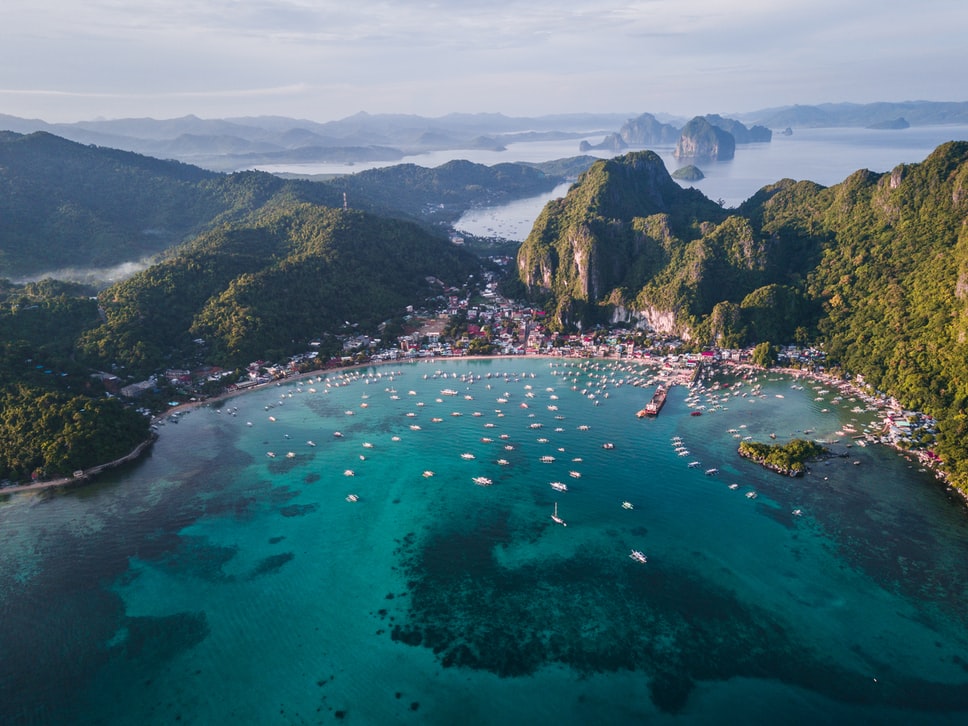“Guaranteed whale shark sighting” is the new slogan used by the tourism sector in Oslob Cebu to lure multitude of tourists in the area. It is effective and for the record no one was ever disappointed as there are always whale sharks to see. For tourists, it is money well-spent and an experience like no other, captured in numerous pictures and selfies. For the tourism sector and tour organizers, it is money in their pockets. For the whale sharks and feeders though, it is just a normal day of feeding and working.
On the surface, it looks like a win-win situation for the tourists and the local community which is the very core ethics of eco-tourism. However, if you look closely, you will discover that the whale sharks encounter in Oslob does more harm than good especially to the whale sharks themselves.
Effects of unethical practices on the whale sharks:
An article recently published by a local travel agency (philippinestravelpackage.com) delves deeper into the into the situation and the effects of such unethical practices are seriously appalling:
- Behavioural changes in the whale sharks’ natural eating habits: The whale sharks that frequent the waters of Oslob demonstrate unnatural feeding behavior like surface feeding, passive feeding and vertical feeding positions. In the wild, when whale sharks feed, they swim naturally with their mouths open sucking huge amount of water and filtering planktons by pushing water out through their gills. None of this natural behaviour was exhibited by the whale shark in Oslob (Source : Lamave).
- Feeding the whale sharks disrupts their migration patterns: Whale sharks are migratory but the whale sharks in Oslob do not migrate anymore because they are constantly fed to guarantee tourists that they will always be there. These creatures are already endangered and the disruption in their migratory pattern does not only mess with their feeding habits but also interrupts their reproduction and breeding process which will ultimately result in the eradication of the entire species.
- Whale sharks sustain injuries: Every time the whales swim towards the feeder boats, they risk injury. The constant friction damages the shark’s skin which is evident in the scars found around their mouths. To make matters worse, because of the constant feeding, the whale sharks learned to associate boats with food and so when they see boats even outside the interaction zone in Oslob, they automatically swim towards them.
- Poor nutritional content: Whale sharks normally feed on planktons, sergestid shrimps, fish larvae and arrow worms. This varied diet ensures that they get enough nutrients in the wild. In Oslob however, the whale sharks are fed only with sergestid shrimps and when there are no tourists, they are not fed at all. Whale sharks are the biggest fish in the world and they can grow to up to 12 meters. This means that they are also heavy eaters, so it is disheartening when these fish don’t get their fill in their natural habitat and instead rely heavily on the provisioned food with poor nutritional value.
- Lack of tourist discipline: The local community of Oslob fail to properly educate and inform the tourists on proper etiquette (no touching, no sunscreen etc) while swimming with the sharks. In some rare instances that they do, they are unable to monitor the individuals in the swimming area resulting in multiple infractions (unnecessary touching of the whale sharks) that are not penalized or reprimanded accordingly. This creates a domino effect and so a lot of tourists have no idea that what they are doing is wrong and should not be tolerated. In general, this tour is an organized chaos and the whales suffer the consequences.
Alternatives to Oslob whale shark encounter:
After thorough research and careful consideration, it is fair to say that Oslob tourism practices do not conform to the ethical standards of responsible tourism. It is not enough to give the local community something to do for their sustenance, the most important value is to ensure the conservation and protection of nature for the next generation and sadly, the local government of Oslob failed in that aspect.
We should all make a conscious effort to help in promoting responsible tourism and spread awareness in areas where massive improvement is necessary. Let us not support unethical practices for the sole purpose of one’s enjoyment at the expense of precious wildlife. There are still other eco-friendly activities to do other than the Oslob whale shark encounter.
- Donsol whale shark sighting: This is a better alternative to Oslob but it is important to note that whale shark sightings are not at all guaranteed. Your best chance of seeing them in the wild is from December to May as part of their migration pattern. Here, tourist interaction is strictly limited to swimming at a distance. No close encounter and definitely no touching. Violators are strongly apprehended and pulled out of the area.
- Apo Island Turtle sanctuary: Apo Island is easily accessible from Zamboanguita in Negros Oriental. The waters here are teeming with life and sea turtles are constantly spotted feeding on healthy supply of sea grass.
- Tubbataha Reef Diving: This is a heavily regulated diving activity as this is not for everybody. Tubbataha Reef is a marine sanctuary. It is protected, located in the middle of Sulu Sea and can only be accessed through Puerto Princesa, Palawan via LiveAboard. Travel time can take up to 10 hours. Divers will be awed at the amazing underwater scene and numerous marine species like sharks, dolphins, rays, and turtles.
